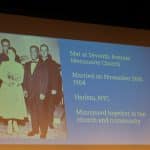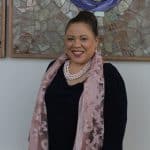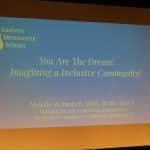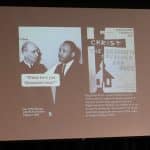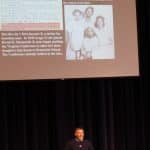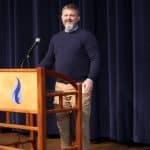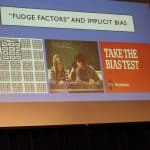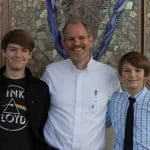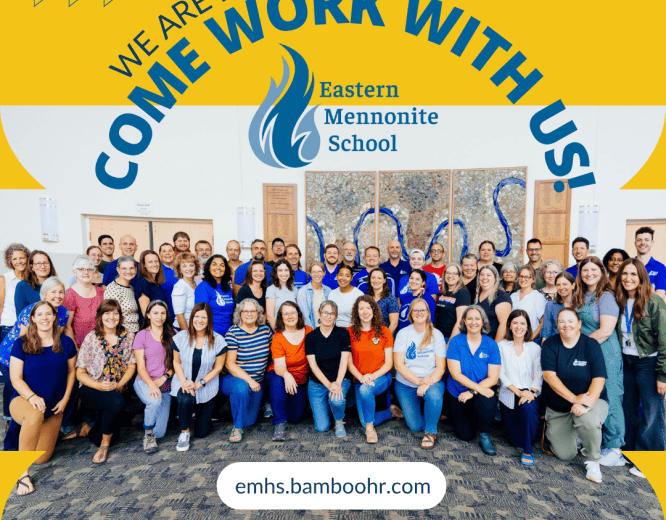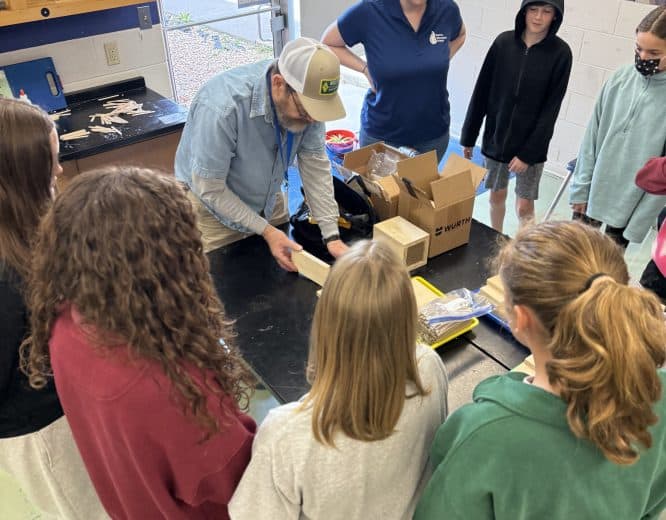Chapel Series Inspires on MLK themes
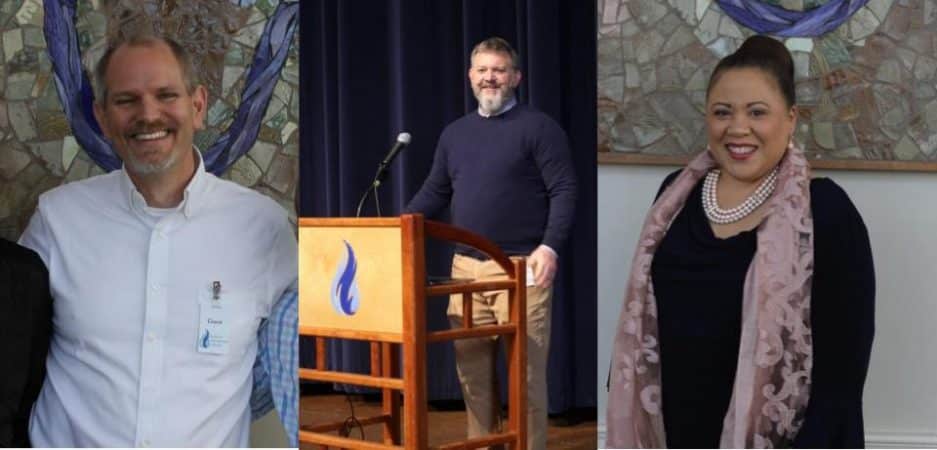
Three speakers and a film helped Eastern Mennonite middle and high school students think about concepts like implicit bias and their own institution’s history of integration as part of MLK Day observations in mid January.
Christian Early, PhD, introduced Daniel Kahneman’s two systems of thinking: “Thinking Fast” (system one) and “Thinking Slow” (system two).
“In the realm of morality,” says Dr. Early, “the problem comes because we like to use system one whenever we can get away with it. It takes less effort. But that is also where our implicit bias.” So, he says, we need help prompting to system two, or more rational thinking.
“We can do that by asking moral questions, or as we call them at JMU, the Eight Key Questions: fairness, outcomes, responsibility, character, liberty, empathy, authority, and rights.”
These concepts are important in understanding human nature in relation to decision making, ethical reasoning and inter-relations.
Dr. Early is an associate professor of philosophy at James Madison University where he is also assistant chair of their Ethical Reasoning in Action program. His three sons are EMS students.
Melody Pannell, MSW, MDiv. and MACE, shared about the marriage of her white mother — one of 17 children from a conservative Mennonite family in Elizabethtown, Pa. — and her African-American father, from Coatsville, Pa. The two met in Voluntary Service at Seventh Avenue Mennonite Church in Harlem, and married in 1964.
The inter-racial marriage was against Melody’s grandfather’s wishes and resulted in her mother being disinherited from the family. Melody and her two siblings grew up in Harlem, where they felt at home as bi – racial children. Melody shared that she first experienced racism from her cousin’s schoolmate while visiting family in Pennsylvania. As a social worker, public speaker, administrator and mentor, Ms. Pannell devotes much of her energy to diversity advocacy and education.
She told EMS students that they are the “dream” and have the capacity to build an inclusive and diverse community.
Listen to a podcast with Ms. Pannell on Diversity and Inclusion in the Mennonite Church.
Mark Metzler Sawin, PhD, told the story of Eastern Mennonite School’s (and later college and university) history with integration. Peggy Webb, daughter of legendary African-American community leader and educator, Roberta Webb, was denied entry to Eastern Mennonite School in 1945. She reapplied in 1952 and gained admission, graduating from EMS one month before the Brown v. Board of Education ruling that declared segregation in public schools unconstitutional.
According to Sawin’s research, Eastern Mennonite College was the first college or university in the south to admit black students.
See a Daily News-Record story and a diversity timeline for more on integration at Eastern Mennonite School/College.
MLK’s “I Have a Dream” speech
Prior to the speakers, students watched a documentary that included footage of Martin Luther King, Jr. delivering his famous “I have a dream” speech at the March on Washington in August, 1963. The film included footage of other events of the Civil Rights era.
Justin King, high school principal, introduced the film in chapel with the following reflections:
“Free at last! Free at last, thank God Almighty, we are free at last.”
When MLK Jr., spoke these words in 1963, he wasn’t talking about reality. He was talking about a vision for a future where “one day right there in Alabama little black boys and black girls will be able to join hands with little white boy’s and white girls as sisters and brothers.”
But WHY was he saying this?
I’ll get to that in a minute. First, here’s a little bit of what life was like in 1963….
Gas was $.29 a gallon, and the average salary was around $5000. America was beginning the Vietnam War, JFK was President, and the TV was invented in Japan… Zip codes had just been invented… our Principal Ms. Archer was born:)
But since Abraham Lincoln’s Emancipation Proclamation in 1863, 100 years before MLK’s speech at the March on Washington for Civil Rights: More than 4,400 African-Americans had been lynched, and not just in the deep south. One of those lynchings happened right here in Harrisonburg, on Court Square.
Blacks and White were not allowed to mix in the south. As a matter of fact, there were laws preventing this. The NAACP had more lawsuits filed in Virginia for civil rights than any other state. A case in Farmville, Virginia, went all the way to the Supreme Court. You know it as Brown vs Board of Education. In many states, including Virginia at the time of this speech, interracial marriages were banned.
We don’t want only to talk about these things on MLK Day. Yes, February is Black History month and January 20th is MLK day. But we want to be aware of the ways that we, as followers of Jesus, can continue to show compassionate service in our community. We want to keep this on the front burner for us to be aware of. As you listen to these famous words today, I challenge you to think about them in the context of the day, and think about how courageous these words were. Be inspired to speak words of courage in to our community today.
And… listen for my favorite quote from the speech, which is actually a quote from the book of Isaiah. “I have a dream that one day every valley shall be exalted, every hill and mountain shall be made low. The rough places will be made plain, and the crooked places will be made straight. And the glory of the Lord shall be revealed, and all flesh shall see it together.”
This is our hope.
